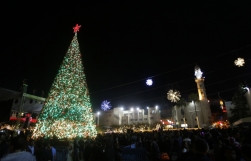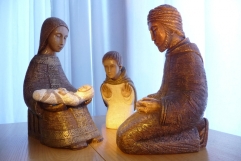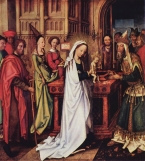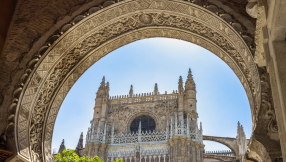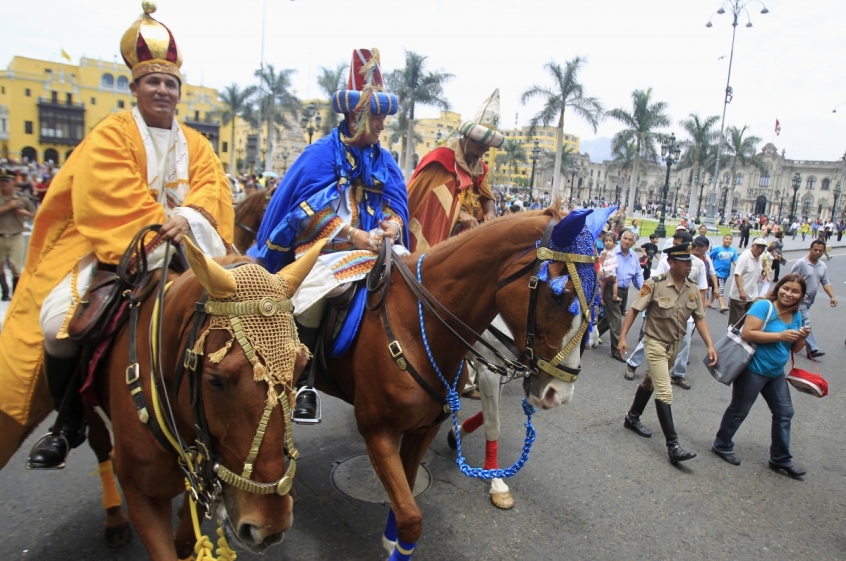
Most of us are now back at work, school or college after the holidays – even those who don't have these daily commitments are probably back into the groove of 'normality'. Christmas seems a long time ago and our minds may well have turned to new years resolutions or, if you're anything like me, wondering when the Spring is going to appear.
Yet today is one of the great feasts of the Church! Epiphany marks the coming of the Magi to visit Jesus and in the Western tradition is the time when we conclude the Twelve Days of Christmas. In the Eastern Church, because of the way the calendars differ, today is the day of Christmas itself – which means hundreds of millions of believers are with their families and celebrating.
As we in the West sit at our desks and persevere with those 2017 'to do' lists, we shouldn't forget about what Epiphany means. In the nativity story, Jesus is born into relative poverty and obscurity in Bethlehem. Mary and Joseph have been visited by angels who foretell his birth and by the time is born, the angels have also imparted the good news to the shepherds who come and worship.
This is all clearly important stuff. The astonishing news that the saviour of the universe was to be born in humble circumstances, and his first visitors were lowly shepherds, shouldn't be forgotten. We know Jesus is born of the line of David and his birth in Bethlehem fits in with the prophesies about the Messiah.
Yet the addition of the Magi to the story adds a whole new dimension. There is some dispute among theologians and historians as to who exactly the Magi were. Matthew's Gospel uses the word Magos which seems to imply that they were Zoroastrians (the ancient faith of Persia) and that they may have been priests in that religion. They probably weren't 'kings' but of course they may well have been 'wise men' as the traditional translation has had it. There is no mention that there were three of them although that's often how many have been depicted.
That they come to Jerusalem in search of the baby Jesus is significant, because Zoroastrians were monotheists who had an expectation of a messiah-like figure. Others think that the Magi were in fact Babylonian rather than Persian but that doesn't especially matter in the context of the story. The significance is that they were not Jewish and yet recognised something special and unique in Jesus. They kneel down before him and offer gifts showing the importance they place on him.
This is the first indication we have in the life of Jesus that his ministry will not be just for Israel but for people of all nations. Although it took his followers many years to see it, this was the moment where it was first revealed that the Messiah would come not only for the Jewish people but for people of all backgrounds, ethnicities and nationalities.
It is easy, then, to see why for many hundreds of years the Church in both East and West has considered the Epiphany (which literally means 'sudden realisation') so important. It was the point at which Jesus began to be revealed as the Messiah for the whole world.
This has led to a number of traditions from the tasty – Epiphay Cake – to the more prayerful, such as the blessing of doors. In this small ceremony, a chalk is used to mark the year and the letters 'C', 'M' and 'B' on the door of a home or a church. The letters stand for a Latin phrase asking for Christ to bless the house.
Orthodox Christians and many Roman Catholics also use Epiphany to focus on the Baptism of Jesus. He was baptised by John the Baptist in the River Jordan. We read in the Gospels that a voice from heaven says: "You are my beloved Son, in whom I am well pleased." This is another way in which Jesus' identity and purpose was being revealed to those around him. The Epiphany theme is clear – God was making known to specific people at a specific time in history who Jesus was. Be they the Magi or the crowds at Jesus' Baptism, God makes clear that something new, different and exciting was to happen through Jesus. That is the Good News that has been passed down to us and which we celebrate at Ephiphany.
A blessed Epiphany to all readers – and a very happy Christmas to our Eastern sisters and brothers!











